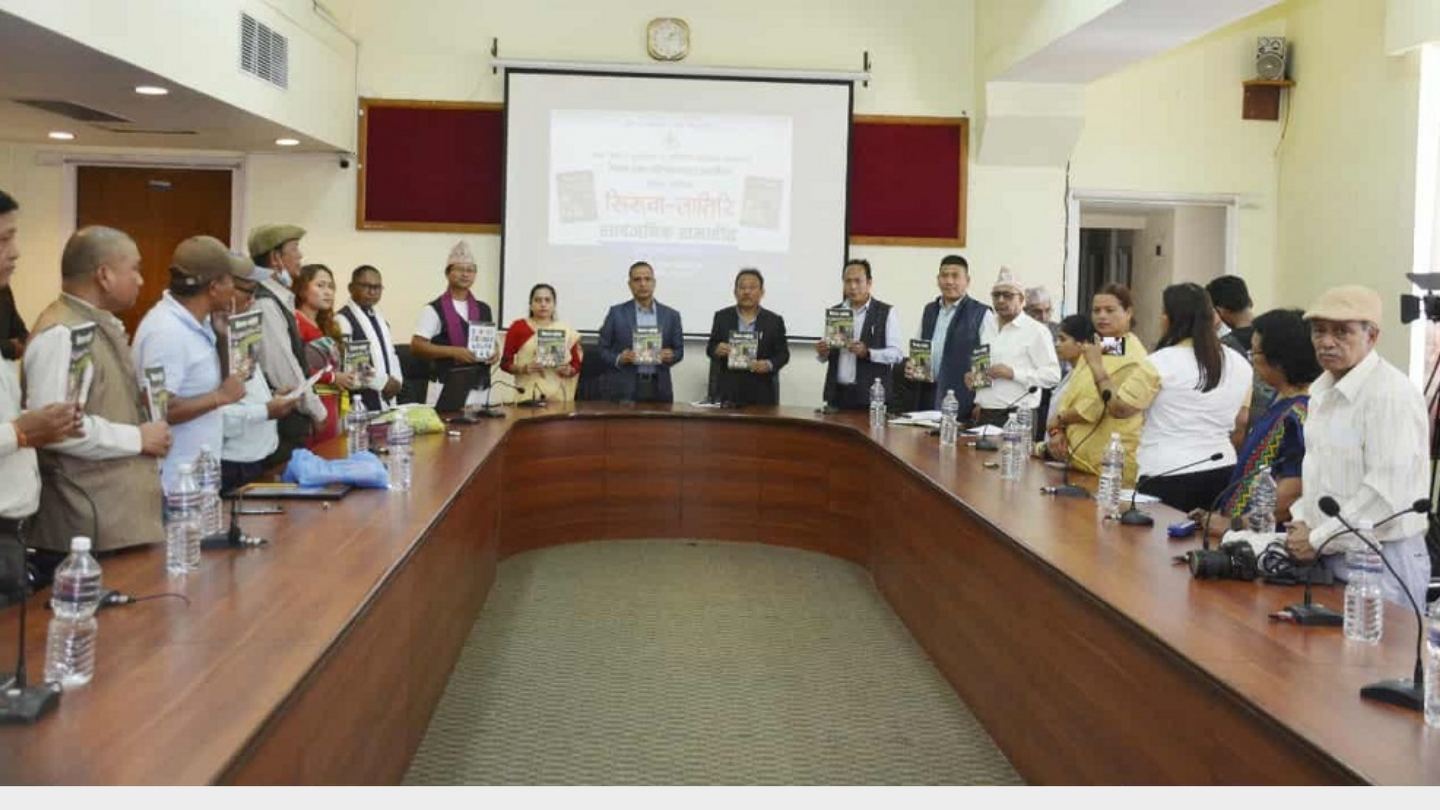
Siruwa-Jatiri Multilingual Magazine Launched by Nepal Academy
The Mother Tongue Literature Department of Nepal Academy has published Siruwa-Jatiri, a multilingual magazine featuring 10 minority indigenous languages spoken in Jhapa, Morang, and Sunsari. With this, the department has now published a total of 10 magazines dedicated to various mother tongues — a milestone contribution to the preservation and development of Nepal’s linguistic heritage.
Launch of the 26th Mother Tongue Literature Series
Nepal Academy Chancellor Bhupal Rai formally inaugurated the 26th Mother Tongue Literature Series by reading the banner and unveiling Siruwa-Jatiri. He stated that ten magazines in different native languages have now been published, containing 46 literary works, analyses, and historical accounts.
Highlighting the significance of the occasion, Chancellor Rai remarked that a renaissance of mother tongue literature is underway in the Academy’s 68-year history. He expressed pride that during his two and a half years in office, he has been able to link mother tongue literature with institutional academic authority.
He also noted that the influence of the “Gen Z movement” has brought new dimensions to Nepal’s society, culture, and politics. He emphasized that no one has the right to undermine the legacy of Gen Z martyrs and called for further studies on their impact on literature and culture. The Dhimal Ethnic Development Center honored Chancellor Bhupal Rai and Member-Secretary Dr. Dhan Prasad Subedi during the program.
Commitment to Language Preservation
Member-Secretary Dr. Dhan Prasad Subedi highlighted that it is everyone’s duty to work for the development of endangered ethnic groups and their languages. He urged collective efforts and cooperation to preserve and promote mother tongues.
Editorial Perspective and Vision
Chair of the session, member of the Academic Council, and Head of the Mother Tongue Literature Department, Rajan Mukarung — who is also the Chief Editor of Siruwa-Jatiri — shared that the magazine brings together ten endangered languages spoken in Morang, Jhapa, and Sunsari. He said that this publication has injected new enthusiasm into the literary movement.
Reflecting on the generational shift, Mukarung emphasized that the future of mother tongue preservation depends on connecting the experience of Generation X, the strength of Generation Y, and the energy of Generation Z. He stressed that the younger generation must appreciate the beauty of their mother tongues to ensure their survival and growth.
Mukarung used a metaphor, stating: “The mundum teaches us that fire is life’s warmth, energy, and comfort. But if we teach the younger generation to see it only as ‘fire,’ the symbolic depth is lost — and Singha Durbar might burn again.” He concluded that publishing magazines in endangered indigenous languages is essential to passing on knowledge, culture, and language to the Gen Z generation.
Research Papers and Presentations
Academic Council member Dr. Bishnu Kumar Singjali presented a paper on “Magar Dhut Language Literature.” Another paper titled “State of Tajpuriya Language and Folklore,” co-authored by Rabilal Tajpuriya and Tejendra Tajpuriya, was presented by Tejendra Tajpuriya.
Following the presentations, former Language Commission member Amrit Yonjan, Prof. Shriram Upadhyay, Purna Bahadur Gharti Magar, and Anju Rajbanshi raised questions and offered suggestions.
Literary Performances
As part of the 26th Mother Tongue Literature Series, Elina Rai recited poetry in Wambule Rai language, Karn Dayal Soradi recited in Baitadeli, and Dendi Sherpa recited in Sherpa language.
Dhimal Ethnic Development Center Chairperson Dan Bahadur Dhimal delivered his best wishes, while Bechan Uraon shared editorial insights.
The editorial board of Siruwa-Jatiri consists of Bechan Uraon, Jivankumar Dhimal, Dilip Baske, and Jagdish Prasad Tajpuriya, with Dr. Som Bahadur Dhimal serving as Executive Editor. The program was hosted by writer Shobha Sunuwar.
Conference

